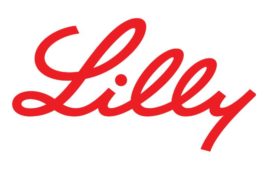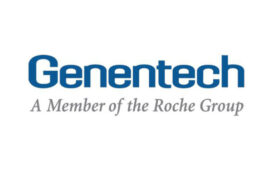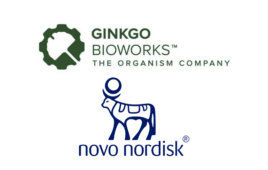The Janssen Pharmaceutical Companies of Johnson & Johnson announced that the FDA has approved Invokana (canagliflozin) to reduce the risk of major adverse cardiovascular (CV) events, including heart attack, stroke or death due to a cardiovascular cause in adults with type 2 diabetes (T2D) who have established CV disease. Invokana is the first and only oral diabetes treatment approved with this indication.
“This FDA approval makes Invokana the only oral type 2 diabetes treatment indicated to reduce the risk of heart attack, stroke or CV death. It is an important step forward for patients and the physicians who treat them,” said James List, M.D., Ph.D., global therapeutic area head, cardiovascular & metabolism, Janssen Research & Development, LLC. “Not only does Invokana enable patients to control their diabetes symptoms by lowering their A1C levels, but it now also helps protect them from potentially devastating cardiovascular events.”
The Canvas (CANagliflozin cardioVascular Assessment Study) Program evaluated the effect of Invokana on CV risk in a broad population of more than 10,000 adults with T2D who had established CV disease (65 percent) or were at risk for cardiovascular disease with two or more risk factors (35 percent).
Overall, treatment with Invokana as compared with placebo in addition to standard of care reduced the combined risk of heart attack, stroke, and CV death by 14 percent (events occurred in 26.9 vs. 31.5 participants, respectively, per 1000 patient-years; HR: 0.86; 95 percent CI: 0.75 to 0.97; p<0.0001 for non-inferiority and p=0.0158 for superiority). In patients with established CV disease, treatment with Invokana reduced the combined risk of heart attack, stroke, and CV death by 18 percent compared to placebo (events occurred in 34.1 vs. 41.3 participants, respectively, per 1000 patient-years; HR: 0.82; 95 percent CI: 0.72 to 0.95).
This FDA approval builds on recent consensus reports from the American Diabetes Association (ADA) and the American Association of Clinical Endocrinologists (AACE) that support the use of Invokana across a broad range of patients. For patients with T2D and clinical CV disease, the ADA recommends medication management with SGLT2 (sodium-glucose cotransporter-2) inhibitors that specifically have a proven cardiovascular benefit.1 AACE also notes that for appropriate patients, Invokana has been shown to reduce major adverse CV events.2
“Americans living with type 2 diabetes are two to three times more likely to die from heart disease than adults without diabetes,” said Ralph DeFronzo, M.D., professor of medicine and chief of the Division of Diabetes at University of Texas, Health Diabetes Center, San Antonio.4 “With this approval, Invokana now plays an even more important role in the overall treatment mix with its demonstrated ability to reduce the risk of potentially devastating cardiovascular events.”
This new indication also applies to the fixed-dose combinations of Invokamet (canagliflozin/metformin HCl) tablets and Invokamet XR (canagliflozin/metformin HCl extended-release) tablets.
About Canvas
Canvas is part of the longest, largest and broadest completed CV outcomes program of any SGLT2 inhibitor. The program evaluated the CV safety and efficacy of Invokana relative to placebo in more than 10,000 adults with T2D who had either established CV disease or were at risk for CV disease (defined as having two or more CV risk factors). The primary endpoint was defined as major adverse CV events (MACE), composed of nonfatal heart attack, nonfatal stroke and CV death, and the secondary endpoint was defined as progression of albuminuria, beta-cell function, estimated glomerular filtration rate changes, and urine albumin–to–creatinine ratio.
Each CV disease component evenly contributed to the Mace risk reduction, including nonfatal heart attack by 15 percent (HR: 0.85; 95 percent CI: 0.69 to 1.05), and nonfatal stroke by 10 percent (HR: 0.90; 95 percent CI: 0.71 to 1.15), and CV death by 13 percent (HR: 0.87; 95 percent CI: 0.72 to 1.06). These outcomes were broadly consistent across various patient subgroups. Overall, adverse events seen in the Canvas Program were generally consistent with previous findings.
A low, but increased risk of below-knee lower extremity amputation was seen in the Canvas Program and is reflected in the Invokana U.S. full Prescribing Information (PI).3 The PI also includes information on renal cell carcinoma from the Canvas Program in the Adverse Reactions section.
Invokana was first approved by the FDA on March 29, 2013 as an adjunct to diet and exercise to improve glycemic control in adults with T2D. Janssen Pharmaceuticals, Inc. and its affiliates have rights to canagliflozin through a license agreement with Mitsubishi Tanabe Pharma Corporation, including in the United States.
References
[1] Management of Hyperglycemia in Type 2 Diabetes, 2018. A Consensus Report by the American Diabetes Association (ADA) and the European Association for the Study of Diabetes (EASD). Diabetes Care. 2018 Sep;dci180033.[2] Consensus Statement By The American Association Of Clinical Endocrinologists And American College Of Endocrinology On The Comprehensive Type 2 Diabetes Management Algorithm. EndocrinePractice. Vol 24 No. 1 January 2018.
[3] Invokana (canagliflozin) U.S. Prescribing Information.
(Source: Janssen Pharmaceutical Companies of Johnson & Johnson)




